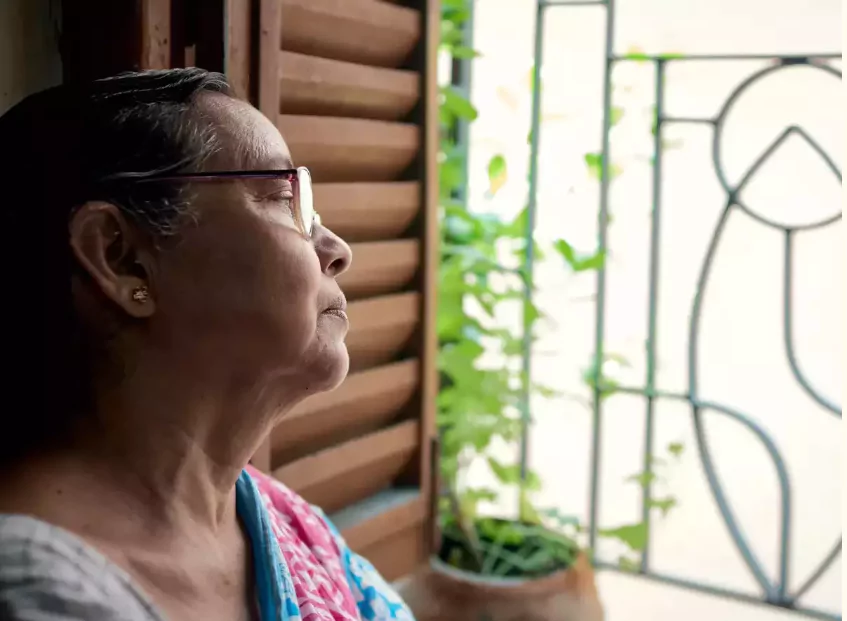Peer Support Groups

By Sujata Jayaprakash, Family & Youth Counsellor Peer support groups play a significant role in contributing to the mental well-being of individuals by providing emotional support, shared experiences, and practical strategies for coping with mental health challenges. Feeling understood contributes to mental well-being. Being in a group with others who have similar experiences fosters a sense of understanding and empathy. Regular interactions with other group members can help alleviate feelings of loneliness and isolation. Learning from others and hearing about their journeys and coping strategies can provide new insights and ideas for managing one’s own mental health. Also realizing that there are other people who are facing similar challenges can reduce feelings of abnormality or stigma. When people are part of a peer support group, often some members share practical tips and strategies for dealing with specific issues, such as managing anxiety or dealing with feelings of depression. Hands-on activities in a group can help develop coping mechanisms, improve communication skills and problem-solving abilities. Regular meetings provide a source of encouragement and motivation to continue working on personal goals. A lot of resource sharing also takes place in groups so people can access information about some helpful services and support networks. Here are a few practical steps to benefit from peer support groups. Find the right group that focuses on your specific mental health issue. Secondly try out a few different groups to see which one feels like the best fit in terms of atmosphere, structure and members. Engage actively in discussions and activities. Share your experiences and listen to others. Attend meetings regularly to build relationships and gain the full benefits of the support offered. Apply learnings and use the resources recommended by group members in your daily life. Build connections outside of meetings for additional support and friendship. Offer your support and encouragement to others, fostering a reciprocal and caring environment. Seek professional guidance, use peer support groups as a complement to professional therapy. If you have any doubts about the advice or strategies discussed in the group, consult with a mental health professional for clarification. By participating in peer support groups, individuals can gain valuable emotional support, learn effective coping strategies, and build a network of understanding peers, all of which contribute significantly to their overall mental well-being.
Beginning the Healing Process: A Journey through Grief

Sharon Prasad Patient Stories of Total Person Care consultations An elderly patient came to us, troubled by persistent cough and sleepless nights. She had been to several doctors, tried different medications, but nothing seemed to help. During our consultation, we took time to do a complete psycho-social evaluation and discovered the heart of the issue. A few years ago she had lost her son who was in his late 20s. He had struggled with depression which eventually claimed his life. This loss left her devastated. To avoid painful conversations about her son, she withdrew from connecting with her friends or going for walks with her neighbors in the society. She spent her days consumed by thoughts of her son’s life and death. This overwhelming grief took a toll on her physical health. Despite various treatments, her symptoms persisted. We understood that her physical ailments were deeply intertwined with her emotional pain. We reassured her that grieving is a natural process and that it was okay to feel the way she did. We provided her with a safe space to express her emotions and listened to her as she shared her story, her memories, and her sorrow. By acknowledging her grief and allowing her to talk about it, we began to see a change. She slowly started to re-engage with her daily activities and connect with people again. Her cough and sleeplessness began to improve as she worked through her emotions. This story highlights the importance of total person care. Sometimes, physical symptoms are manifestations of deeper emotional wounds. By addressing the whole person – mind, body, soul and spirit – we can truly begin the healing process. Understanding and compassion can make all the difference.
Mental Health & Elderly

By Sujata Jayaprakash, Family & Youth Counsellor The elderly population faces a high risk of mental health issues due to a variety of factors including biological changes, social factors, and pre-existing health conditions. Focus on the quality of life Understanding these risks and implementing effective prevention and after-care strategies can significantly improve their quality of life. This encompasses a holistic approach to healthcare as it considers all aspects of a person’s well-being. Dealing with changes in the physical, emotional, and social realm Biological changes like Alzheimer’s diseases and other forms of dementia are more common among the elderly. Illnesses such as heart disease, diabetes and arthritis can also affect the mental health of the elderly. Another factor that majorly contributes to mental health issues is hearing and vision loss which leads to social isolation and depression among both men and women. Often the elderly are affected by the loss of their spouse, friends and reduced social networks which leads to a feeling of loneliness. They also seem to lose their identity and purpose when they transition from active work life to retirement life. Slower processing speeds and difficulties with attention and problem solving is often frustrating for them. Another factor that adds to their mental health burden is their medication side effects. The elderly population are often on multiple medications as per their health conditions which impacts their mental health well-being. Encouragement to take ownership for their well-being Prevention is better than cure so there are a few things that we could encourage our elderly population to do to help them with their mental well-being even while they are aging, what we can call aging gracefully. We need to encourage them to exercise regularly to stay physically fit and improve their mood and cognitive function. They need to also eat a balanced diet to support their brain health and overall well-being and finally to go for their regular medical check-ups for any early detection and management of chronic conditions. A supportive community and a safe environment There are also other factors that will help with mental well-being and that is engaging in activities for mental stimulation e.g. puzzles, reading and learning new skills, to keep the brain active. Family members must regularly interact with them to make them feel strong family connections. However, sometimes we have missed most of all or a few of the above knowingly or unknowingly so we need to have the after-care strategies in place to help and support the elderly. One of the most helpful are the support groups where they can interact with peer groups and share their experiences and strategies. Providing structured activities and social interaction opportunities helps them have a safe community around them. We also need to ensure that their living environments are safe and supportive to prevent risks like falling etc. Above all every family member, big or small, needs to interact with them and make sure they are cared for and appreciated and encourage them to keep their spirits high and make them happy. By addressing these factors and implementing comprehensive prevention and after-care strategies, we can significantly improve the mental health and overall well-being of the elderly population.
Listening with Compassion: A Journey from Persistent Cough to Wellbeing

Sharon Prasad Patient Stories of Total Person Care consultations In our line of work, we often encounter patients with complex, interwoven issues that extend beyond their immediate physical symptoms. One such case involved a patient who consulted our team due to a long-standing cough that kept her awake at night. Despite trying numerous home remedies and over-the-counter medications, she found no relief and was growing increasingly frustrated and exhausted. During our detailed history-taking, we delved deeper into her emotional and mental wellbeing. It was then that she revealed a significant aspect of her struggle: she was being taunted because of her weight, which was severely affecting her mental health. In an attempt to lose weight quickly, she had been skipping meals, a practice that was not only unhealthy but was also exacerbating her physical symptoms. We recognized that her persistent cough was linked to increased acidity, which in turn was caused by her erratic eating habits and the stress she was experiencing. The disturbed sleep she was suffering from was a direct consequence of this vicious cycle. What stood out in this interaction was the power of simply listening to her story. By taking the time to understand how she was feeling emotionally, we were able to identify the root causes of her physical symptoms. This empathetic approach made a significant impact. She felt heard and understood, which motivated her to take positive steps towards modifying her lifestyle. With our support, she began to adopt healthier eating habits and found ways to manage her stress. As a result, her acidity decreased, and her persistent cough finally began to subside. Her sleep improved, and she started to regain her overall sense of wellbeing. This case underscores the importance of holistic care that considers both the physical and emotional aspects of a patient’s health. It reaffirms our commitment to listening with compassion and addressing the underlying factors that contribute to our patients’ conditions. By fostering an environment of understanding and support, we can help our patients embark on a path to better health and a more balanced life
Chronic Disease Management through Regular Follow-Ups

Dr. Vinita Mathew Living with a chronic disease like diabetes, heart disease, asthma can be challenging, but regular follow-ups with your primary care physician (PCP) can make a significant difference in managing your condition and improving your overall health. As a family physician focused on whole person care, I cannot stress enough the importance of maintaining a strong relationship with your PCP and committing to regular check-ins. There are some great benefits of regular follow-ups Tracking the progression of your condition through Continuity of Care Your PCP knows your medical history, understands your unique needs, and can track the progression of your condition over time. This familiarity allows them to make more informed decisions about your treatment plan and catch any potential issues early on. Detecting complications before they become serious through appropriate Preventive Measures Regular follow-ups also provide an opportunity for your PCP to monitor your vital signs, order necessary tests, and adjust your treatment plan accordingly. By staying proactive, you can avoid costly and time-consuming hospitalizations and emergency room visits. Taking into account your physical, mental, and emotional well-being through Personalized Care Your PCP understands that managing a chronic disease can be overwhelming and is available to support you every step of the way. Regular follow-ups allow your PCP to address any concerns you may have and provide you with the resources and support you need to thrive. Empowering you with knowledge and tools needed to manage your condition effectively Regular follow-ups helps you to take an active role in your healthcare. Your PCP can provide you with the resources for lifestyle modifications, medication management, and self-monitoring techniques. By working closely with your PCP, you can develop a sense of control over your health and feel more confident in your ability to manage your chronic disease. Make the most of time by preparing well for your Appointment Make a list of any questions or concerns you may have, and be sure to bring any relevant medical records or test results. It’s also a good idea to keep a journal of your symptoms and any changes you’ve noticed since your last appointment. Positive impact on health through regular follow-ups Many patients with chronic diseases have shared that despite their initial hesitation, after committing to see their primary care physician regularly and following the recommended treatment plan, their conditions have stabilized, and they were able to reduce her medication dosage, attain optimal weight and reported feeling more energetic and confident in their ability to manage her condition. Remember, your PCP is here to support you and help you manage your chronic disease effectively. By committing to regular follow-ups and working closely with your PCP, you can take control of your health and live your best life.
Focus on what matters: The Power of Prevention

Dr. Vinita Mathew, Family Physician & Counsellor (M.B.B.S, PGD Counselling Psychology, PGD Mental Health) Concern for the overall well-being of my patients is something that drives me in my endeavor to practice whole person care. My approach to healthcare goes beyond simply treating illnesses when they arise. I firmly believe in the power of prevention and health promotion to help them live their healthiest, most vibrant life. The Importance of Prevention Many of the leading causes of death and disability today, such as heart disease, stroke, cancer, type 2 diabetes, and many infectious diseases, are preventable. By making healthy lifestyle choices and utilizing preventive services like regular screenings, health check-ups and immunizations, we can avoid many serious health problems before they start. Prevention is also more cost-effective than treatment. Investing in your health now can save you significant time, money, and suffering down the road. Regular check-ups, open communication with your doctor, and proactive steps to improve your health are some of the best investments each of you can make. Empowering You to Take Charge The role of a family physician is to partner with our patients and provide them with the knowledge, tools and support to take charge of their well-being. We work closely with every individual under our care to: Assess their unique health risks and needs Set achievable goals for improving their health Develop a personalized prevention plan tailored to their lifestyle Provide guidance, encouragement and accountability along the way Together, we can create sustainable healthy habits that become a natural part of their daily life. Small steps, consistently taken, can lead to profound improvements in how they look and feel. Whole Person Care Prevention is firmly grounded in whole person care. This means looking at an individual’s physical, mental, emotional and social well-being as interconnected parts of a whole. Optimal health requires nurturing all aspects of yourself. For example, managing stress is just as important as eating well and exercising. Cultivating strong social connections and finding meaning in life also contribute immensely to health and longevity. The Time is Now The best time to prioritize prevention is now. I encourage all readers to schedule your annual check-up with your family physician if you haven’t already. Go prepared with questions and an open mind. It’s critical that you work together with your physician to create a prevention plan that fits your unique needs and lifestyle. Remember, you have the power to transform your health. With the right knowledge, tools and support, you can avoid many serious illnesses and live your best life. Today is the day to get started!
Recognizing the Signs: A Story of Timely Intervention and Recovery

Sharon Prasad Patient Stories of Total Person Care consultations In one of our recent experiences, a support team member attended a prayer meeting and observed a woman behaving unusually. She was talking and whispering to imaginary people, and had been telling her husband that their neighbors were troubling her—claims that her husband had verified to be untrue. Concerned about her behavior, our team member referred her to us for a more thorough evaluation. Upon conducting an initial assessment, we were able to diagnose that she was exhibiting symptoms of psychosis. Psychosis is a condition that can profoundly impact a person’s perception of reality, often leading to distressing delusions and hallucinations. It was clear that she needed immediate and specialized care. Thanks to the timely intervention and diagnosis, we were able to initiate an appropriate treatment plan. With the right combination of medication, therapy, and continuous support, she began to show significant improvement. Her delusions and hallucinations gradually subsided, and she started to regain a more accurate perception of reality. Today, she is functioning well and has made remarkable strides in her recovery. Her story is a powerful reminder of the importance of early detection and intervention in mental health issues. It highlights the critical role that attentive and compassionate support can play in identifying and addressing the needs of those who may be struggling silently. Our team remains dedicated to providing comprehensive care that encompasses not only physical health but also mental wellbeing. We are committed to ensuring that every individual receives the help they need to lead a healthy, fulfilling life. This experience underscores our belief in the power of timely intervention and the positive outcomes that can be achieved with proper treatment and support.
Exploring Delusional Thoughts: A Journey in Diagnosis and Compassionate Care

By Dr. Vinita Mathew, Family Physician & Counsellor (M.B.B.S, PGD Counselling Psychology, PGD Mental Health) For a Healthcare provider every patient encounter presents a unique opportunity to unravel the complexities of the human mind and provide compassionate care. Recently, I had a profound experience diagnosing a patient brought in by her husband, who expressed distressing delusional thoughts about her neighbors conspiring to cause harm. Join me on this journey as we delve into the intricacies of diagnosing and supporting a patient experiencing delusional thoughts. The Encounter: Unraveling the Layers of Delusion It was a quiet afternoon in the clinic when a concerned husband brought in his wife, a 40-year-old woman, who had been experiencing distressing delusional thoughts about their neighbors plotting to harm her. As she recounted elaborate scenarios of surveillance and conspiracy, it became evident that her beliefs were fixed, false, and causing significant distress. The delicate task of unraveling the layers of her delusion began, requiring a blend of empathy, patience, and clinical acumen. Navigating the Diagnostic Process: Challenges and Insights The diagnostic process unfolded, revealing the complexities of delusional disorder. Distinguishing between delusional thoughts and reality, exploring the impact on the patient’s daily functioning, and ruling out underlying medical or psychiatric conditions were crucial steps in the assessment. Collaborating with a multidisciplinary team, including a psychiatrist and a mental health worker, provided valuable insights and perspectives in formulating a comprehensive care plan. The Role of Compassionate Care: A Human-Centered Approach to Healing In the midst of the patient’s distress and confusion, the principles of compassionate care guided our approach. Beyond the diagnostic label, the focus shifted to understanding the person behind the delusion, acknowledging her subjective experience, and fostering a therapeutic alliance built on trust and empathy. Engaging in active listening, validating her feelings, and offering reassurance were pivotal in establishing a safe and supportive therapeutic environment. Empathy, Education, and Empowerment: Building Resilience in Adversity It was heartening to watch the patient’s delusional thoughts gradually subsided with appropriate pharmacological treatment by our expert psychiatrist. Appropriate supportive psychoeducation to her husband has been a crucial aspect on the journey of healing and recovery. The transformative power of empathy, education, and empowerment in mental health care became evident in the patient’s journey toward healing. Reflections on Care and Collaboration: Nurturing Hope and Resilience Whenever the patient and her husband visit our team for follow-up visits, a sense of hope and resilience lingers in the air. The experience of diagnosing and supporting a patient with delusional thoughts was a poignant reminder of the transformative impact of compassionate care, collaborative teamwork, and human connection in mental health care. This patient encounter has underlined the importance of approaching each patient with empathy, understanding, and a commitment to holistic healing. Our role as healthcare providers In conclusion, the journey of diagnosing a patient with delusional thoughts was a profound exploration of the human experience, resilience, and the healing power of compassionate care. As healthcare providers, our role extends beyond diagnosis and treatment to encompass empathy, education, and empowerment in nurturing hope and resilience in those we serve. The journey continues, guided by the principles of compassion, collaboration, and unwavering dedication to the well-being of our patients.
How Your Family Physician Can Support Whole Person Well-Being

By Dr. Vinita Mathew, Family Physician & Counsellor (M.B.B.S, PGD Counselling Psychology, PGD Mental Health) A holistic approach to healthcare is to consider all aspects of a person’s well-being. This is known as total person care or whole person care, which involves looking at the physical, emotional, mental, social, and even spiritual needs of each patient to provide truly comprehensive care. Our health and well-being are interconnected Too often, healthcare focuses narrowly on treating specific symptoms or conditions. But as a family doctor, I know that our health and well-being are interconnected. Our physical health impacts our mental health, our relationships impact our stress levels, and our social circumstances can be a major determinant of our overall health outcomes. I strive to get to know each patient as a whole person. I am interested in knowing about their home life, their work, their hobbies, their relationships, and their overall happiness and life satisfaction. Understanding the context of their lives can help me provide care that is tailored to their unique needs and goals. A traditional approach vs a whole person approach For example, let’s say a patient comes to me with high blood pressure. A traditional approach might be to simply prescribe blood pressure medication. But in a total person care consultation, I would dig deeper. I would ask about the patient’s diet, exercise routine, stress levels, sleep habits, and any other factors that could be impacting their blood pressure. I might discover that the patient is working long hours at a stressful job, has little time for healthy meals, and is not sleeping well due to family obligations. In that case, my treatment plan would go beyond just medication. I would work with the patient to identify ways to reduce stress, improve sleep, and incorporate more healthy habits into their daily life. This could involve counseling, referrals to mental health resources, or connecting the patient with community support services. The key is looking at the whole person and addressing the root causes of health issues, not just the symptoms. This approach has been shown to lead to better health outcomes, higher patient satisfaction, and lower healthcare costs in the long run. Team work Of course, whole person care doesn’t mean that family doctors are trying to be all things to all people. We work closely with other healthcare providers, social workers, counselors, Psychotherapist, fitness experts and financial coaches to ensure that patients have access to the full range of services they need. Our role is to coordinate this care and be a consistent, trusted partner in each patient’s health journey. If you’re looking for a family doctor, I encourage you to seek out one who practices total person care. It may take a bit more time and effort, but having a physician who truly knows and cares about you as a whole person can make a big difference in your health and well-being. Don’t settle for anything less than comprehensive, compassionate care..
